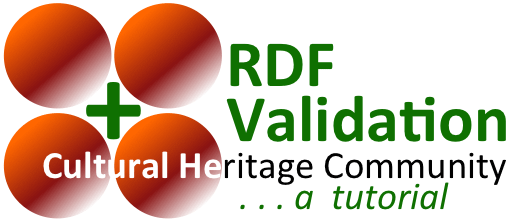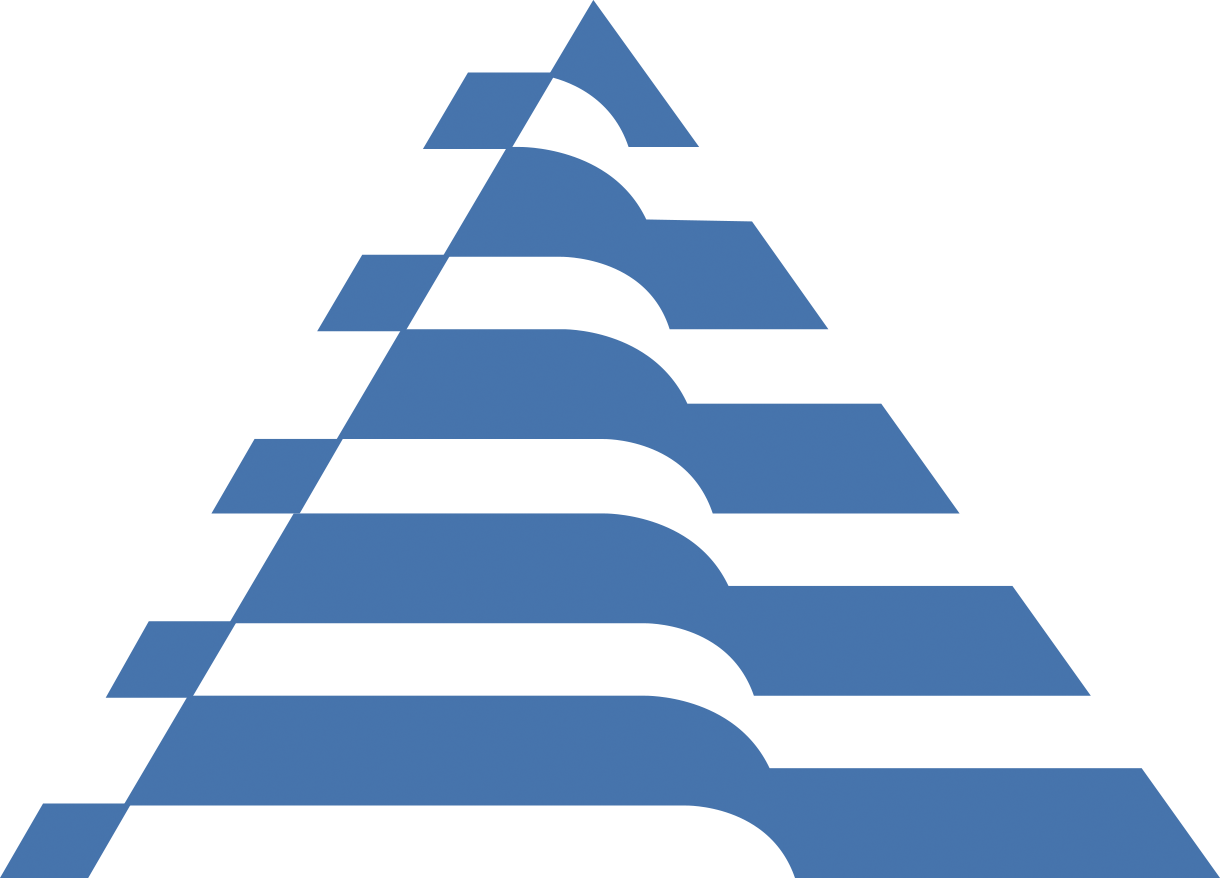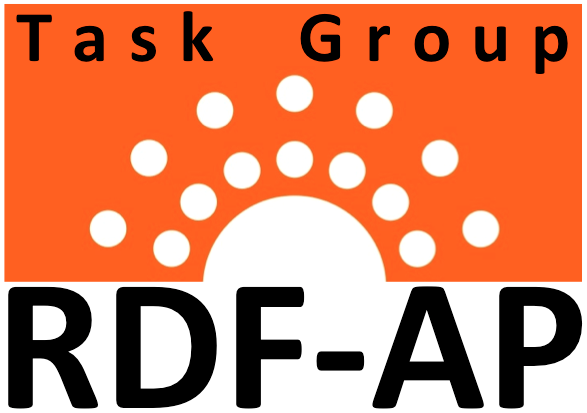RDF Validation in the Cultural Heritage Community
Tutorial: Wednesday :: October 8, 2014 :: 1:00-5:00
Tutorial Planners/Presenters include:
Karen Coyle (Facilitator)—Consultant, USA
Tom Baker—Sungkyunkwan University, Korea
Kai Eckert—University of Mannheim, Germany
Thomas Bosch—GESIS - Leibniz Institute for the Social Sciences
Tom Johnson—Digital Public Library of America (DPLA), USA
Stefanie Ruehl—SUB Göttingen, Germany
« Presentations »

Abstract: « Resource Description Framework » (RDF) does not natively provide rules for structuring descriptions or validating instance data. This tutorial will present the problems of data structuring and validation in RDF. There will be a discussion of current techniques that are being proposed as solutions (« SPIN », « Data Shapes », « ICV », etc.). Using examples from the cultural heritage community (Europeana Data Model (« EDM »), Digital Public Library of America (DPLA) Metadata Application Profile (« MAP »), etc.), speakers will present actual cases where validation and record-like structuring is needed. It will relate these efforts to the concept of application profiles, drawing on some existing examples, such as Dublin Core Application Profiles (« DCAP ») and « BIBFRAME Profiles ».
« Vocabulary & Abbreviations »
Learning Outcomes
Attendees will able to:
-
Understand why validation is a significant issue with RDF and OWL; and, how constraints in those languages differ from our usual concept of constraints;
-
Identify and monitor today's efforts, and those in development, to solve this problem of validation;
-
Describe some of the specific validation issues with cultural heritage data; and
-
Articulate the issues in their own cultural heritage context.
Attendees will be encouraged to ask questions of speakers with "real life" experience with linked data and the issues of validation.
NOTE: This tutorial is especially recommended for delegates new to the topic and planning on attending the Thursday Special Session « RDF Application Profiles and Tools for Metadata Validation and Quality Control ».
Tutorial Agenda
-
Validation needs in a nutshell
-
Properly structured data (required entities or properties; what is a "complete record"?)
-
Valid values (value types; IRI sources)
-
Use cases and analysis
-
-
RDF and Validation: What is the issue?
-
Difference between inferencing and validation
-
Web Ontology Language (OWL) in an open world"
-
-
Validation techniques in use
-
SPIN, ICV, Shapes, etc.
-
Open world vs. closed world approaches
-
-
Validation on current data models
-
Europeana Data Model
-
DPLA Metadata Application Profile (MAP)
-
-
Application profiles as a possible solution
-
DCAP
-
BIBFRAME profiles
-
DCMI RDF validation group work
-
Vocabulary, Abbreviations & URLs:
- BIBFRAME profiles :: http://www.loc.gov/bibframe/docs/bibframe-profiles.html
- Data Shapes :: http://www.w3.org/2001/sw/wiki/ShEx
- DCAP (Dublin Core Application Profile) :: http://dublincore.org/documents/profile-guidelines/ & http://dublincore.org/documents/singapore-framework/
- DCMI RDF Application Profile Task Group :: http://wiki.dublincore.org/index.php/RDF-Application-Profiles
- EDM (Europeana Data Model) :: http://pro.europeana.eu/edm-documentation
- ICV (Pellet Integrity Constraints) :: http://www.w3.org/2001/sw/wiki/ICV
- RDF (Resource Description Framework) :: http://www.w3.org/standards/techs/rdf#w3c_all
- MAP (Metadata Application Profile (Europeana)) :: http://dp.la/info/developers/map/
- Open & Closed World Assumptions :: https://en.wikipedia.org/wiki/Open-world_assumption
- OWL (Web Ontology Language) :: http://www.w3.org/standards/techs/owl#w3c_all
- SPIN (SPARQL Inferencing Notation) :: http://spinrdf.org/
Tutorial sponsored by:
![]() DCMI's work is supported, promoted and improved by « Member organizations » around the world:
DCMI's work is supported, promoted and improved by « Member organizations » around the world:
 |  |  |
 |  |  |
 |  |  |
 |  |  |
 |
![]() DCMI's annual meeting and conference addresses models, technologies and applications of metadata
DCMI's annual meeting and conference addresses models, technologies and applications of metadata



